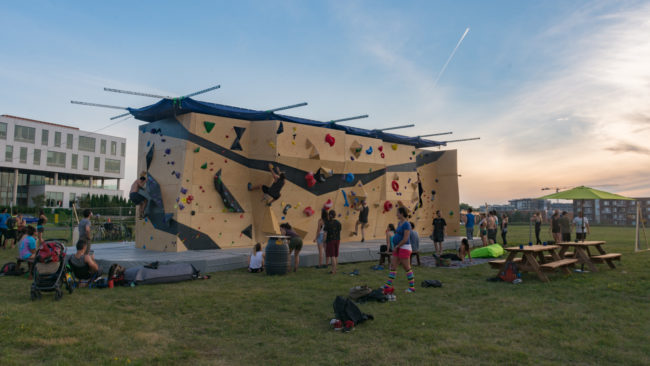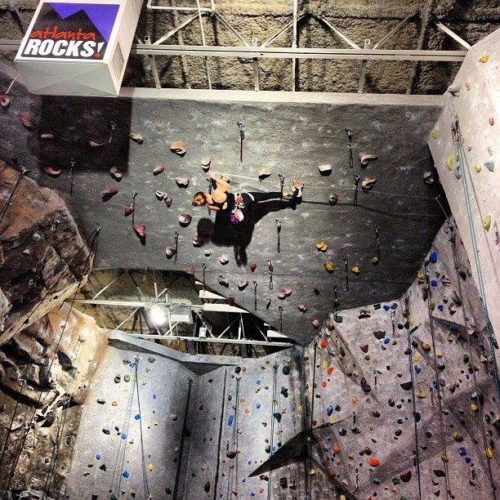
After nearly a quarter century of helping climbers scale new heights, we announce today that Atlanta Rocks! Indoor…
Posted by Atlanta Rocks! Indoor Climbing Gym on Monday, November 19, 2018

After nearly a quarter century of helping climbers scale new heights, we announce today that Atlanta Rocks! Indoor…
Posted by Atlanta Rocks! Indoor Climbing Gym on Monday, November 19, 2018

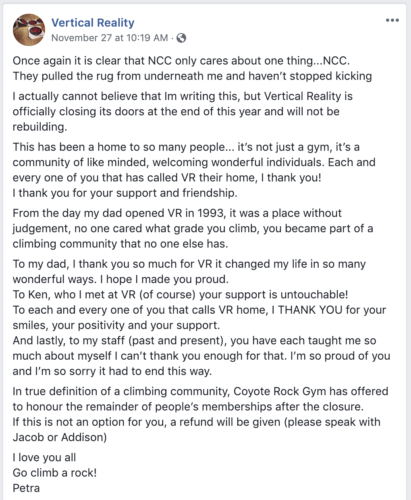
With the Tokyo Olympics on the horizon and the Dawn Wall making mainstream news, our community is amidst a growth spurt—and the growing pains are real. While we might be frustrated by that newbie climbing on top of us at the gym at 5:30 p.m. on a Tuesday, climbing will continue to grow for the same reasons we all came to it in the first place: to get stronger, to learn more about ourselves, and to connect to a community. As the new gathering spots, gyms are having a lasting impact, one whose effects we’re only slowly beginning to understand.Read more about the State of Climbing gyms at Climbing Magazine
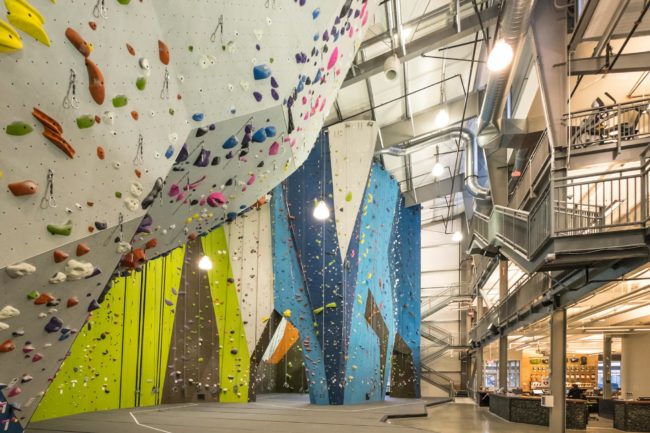
 PRESS RELEASE: El Cap, the new parent company of Earth Treks and Planet Granite, today announced the election of Topher Gaylord as an independent member of its Board of Directors. In addition, Scott Yeager joined El Cap as its Chief Financial Officer and Chris Jenkins has been appointed as the Company’s Chief Strategy Officer.
“These new team members join El Cap at an exciting time as we continue to introduce more people to the world of climbing,” said Robert Cohen, CEO of El Cap. “The addition of these positions complements our existing team’s skills and experiences, and we are confident they will provide valuable perspectives as we continue to create community spaces for people to share their love of climbing, adventure and fitness. We look forward to their contributions and are excited they chose El Cap.”
“Much like everyone else in the outdoor and fitness industries, I have been following El Cap’s successes,” said Gaylord. “I admire El Cap for its dynamic leadership team and innovative approach to climbing gyms and am honored to be joining their Board.”
Topher Gaylord has a lifetime of experience in the athletic and outdoor industries both professionally and as an athlete. Topher currently serves as Senior VP & Group General Manager of Under Armour’s Run, Train and Outdoor divisions. He is an accomplished leader with over three decades of experience in sales, marketing and business development at leading outdoor companies. Prior to Under Armour, Topher served at Columbia Sportswear as President of the Mountain Hardwear & Montrail Brands. His career also includes 17 years with VF Corporation in various leadership roles, including President of the International Outdoor & Action Sports division, leading the development of The North Face, Vans, Reef, JanSport brands.
Scott Yager has decades of finance and management experience in adventure companies. He spent the last 10 years at iFLY Indoor Skydiving, and helped the organization grow from 8 employees to over 1,000 across 37 locations worldwide, supported by multiple debt and equity financings. Scott greatly enjoys helping develop complex organizations focused on delivering unique, exciting guest experiences while maintaining strong customer service.
With more than 20 years of experience with the El Cap family, Chris Jenkins has accepted the challenge of filling the newly-designed role of Chief Strategy Officer. Chris possesses a blend of strong executive leadership skills, business acumen, and industry experience, which will be well-suited to the CSO position. He is passionate about the El Cap community and using data to create strategies that ultimately create better experiences for our members and guests.
PRESS RELEASE: El Cap, the new parent company of Earth Treks and Planet Granite, today announced the election of Topher Gaylord as an independent member of its Board of Directors. In addition, Scott Yeager joined El Cap as its Chief Financial Officer and Chris Jenkins has been appointed as the Company’s Chief Strategy Officer.
“These new team members join El Cap at an exciting time as we continue to introduce more people to the world of climbing,” said Robert Cohen, CEO of El Cap. “The addition of these positions complements our existing team’s skills and experiences, and we are confident they will provide valuable perspectives as we continue to create community spaces for people to share their love of climbing, adventure and fitness. We look forward to their contributions and are excited they chose El Cap.”
“Much like everyone else in the outdoor and fitness industries, I have been following El Cap’s successes,” said Gaylord. “I admire El Cap for its dynamic leadership team and innovative approach to climbing gyms and am honored to be joining their Board.”
Topher Gaylord has a lifetime of experience in the athletic and outdoor industries both professionally and as an athlete. Topher currently serves as Senior VP & Group General Manager of Under Armour’s Run, Train and Outdoor divisions. He is an accomplished leader with over three decades of experience in sales, marketing and business development at leading outdoor companies. Prior to Under Armour, Topher served at Columbia Sportswear as President of the Mountain Hardwear & Montrail Brands. His career also includes 17 years with VF Corporation in various leadership roles, including President of the International Outdoor & Action Sports division, leading the development of The North Face, Vans, Reef, JanSport brands.
Scott Yager has decades of finance and management experience in adventure companies. He spent the last 10 years at iFLY Indoor Skydiving, and helped the organization grow from 8 employees to over 1,000 across 37 locations worldwide, supported by multiple debt and equity financings. Scott greatly enjoys helping develop complex organizations focused on delivering unique, exciting guest experiences while maintaining strong customer service.
With more than 20 years of experience with the El Cap family, Chris Jenkins has accepted the challenge of filling the newly-designed role of Chief Strategy Officer. Chris possesses a blend of strong executive leadership skills, business acumen, and industry experience, which will be well-suited to the CSO position. He is passionate about the El Cap community and using data to create strategies that ultimately create better experiences for our members and guests. 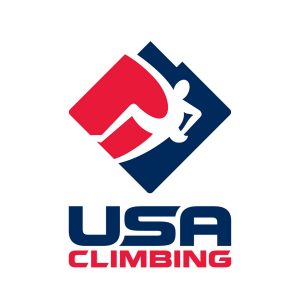 PRESS RELEASE: The State of Utah continues to build upon its strong Olympic Legacy with the announcement today that USA Climbing, the National Governing Body for the sport, is relocating its headquarters to Utah. The Utah Sports Commission partnered with USA Climbing to facilitate the organization’s move from Boulder, Colorado.
“Since 2002, Utah has welcomed the world’s greatest athletes and events to our great state,” said Governor Gary R. Herbert. “Relocating another National Governing Body of Sport like USA Climbing to Utah is a big win, it will allow us to have some of the world’s best climbing athletes train here and call Utah home and we will also be a hub for the hosting of many major climbing events as well.”
“We are thrilled to welcome USA Climbing to Salt Lake City,” said Mayor Jackie Biskupski. “With worldclass amenities surrounded by some of the most spectacular mountain terrain, it is easy to understand why Salt Lake is the perfect place for a growing organization like USA Climbing to call home.”
USA Climbing’s mission is to promote the growth and success of the sport of competition climbing in the United States while generating sustained competitive excellence for United States athletes in international competition. “We look forward to calling the new Industry SLC development in Salt Lake City’s Granary District our new home,” said Marc Norman, USA Climbing’s CEO. “With a strong climbing heritage, unrivaled access to indoor and outdoor climbing statewide, and a thriving business community, Salt Lake City is a great choice. Once established, we look to create a National Training Center, where our National Team athletes can regularly train to compete at the highest levels internationally.”
USA Climbing, founded in 1998, is one of the newest and fastest growingNational Governing Bodies in the United States growing at an average rate of 32% per year. USA Climbing conducts or sanctions over 350 competitions annually, including National Championships in Adaptive, Bouldering, Collegiate, Speed, and Sport. USA Climbing also oversees the U.S. National Teams for youth and adults to compete internationally in World Cup and World Championship competitions through the generous support of its Founding Partner, The North Face, and its main sponsors Butora USA, Clif Bar, and Petzl America.
“This move will serve to strengthen not just our Olympic Legacy, but also our Olympic future,” said Jeff Robbins, president & CEO of the Utah Sports Commission. “The presence of USA Climbing in our community allows us to continue to help position the state as a leader in the international sports industry and to further focus on sports development as a key component of Utah’s promotional and economic development strategy.”
“As USA Climbing prepares to make its Olympic Debut at the 2020 Olympic Summer Games in Tokyo, Japan, we are excited to announce the relocation of our National Headquarters to Salt Lake City,” said Patti Rube, President of USA Climbing’s Board of Directors. “USA Climbing has worked closely with the Utah Sports Commission, Salt Lake City, and local business leaders over the past two years for our Bouldering National Championships with tremendous results. We are eager to continue and expand this
partnership as we prepare for the 2020 Olympic Games.”
USA Climbing will become the third national governing body to call Utah home, joining U.S. Ski and Snowboard located in Park City, and US Speedskating which is located in Salt Lake City.
PRESS RELEASE: The State of Utah continues to build upon its strong Olympic Legacy with the announcement today that USA Climbing, the National Governing Body for the sport, is relocating its headquarters to Utah. The Utah Sports Commission partnered with USA Climbing to facilitate the organization’s move from Boulder, Colorado.
“Since 2002, Utah has welcomed the world’s greatest athletes and events to our great state,” said Governor Gary R. Herbert. “Relocating another National Governing Body of Sport like USA Climbing to Utah is a big win, it will allow us to have some of the world’s best climbing athletes train here and call Utah home and we will also be a hub for the hosting of many major climbing events as well.”
“We are thrilled to welcome USA Climbing to Salt Lake City,” said Mayor Jackie Biskupski. “With worldclass amenities surrounded by some of the most spectacular mountain terrain, it is easy to understand why Salt Lake is the perfect place for a growing organization like USA Climbing to call home.”
USA Climbing’s mission is to promote the growth and success of the sport of competition climbing in the United States while generating sustained competitive excellence for United States athletes in international competition. “We look forward to calling the new Industry SLC development in Salt Lake City’s Granary District our new home,” said Marc Norman, USA Climbing’s CEO. “With a strong climbing heritage, unrivaled access to indoor and outdoor climbing statewide, and a thriving business community, Salt Lake City is a great choice. Once established, we look to create a National Training Center, where our National Team athletes can regularly train to compete at the highest levels internationally.”
USA Climbing, founded in 1998, is one of the newest and fastest growingNational Governing Bodies in the United States growing at an average rate of 32% per year. USA Climbing conducts or sanctions over 350 competitions annually, including National Championships in Adaptive, Bouldering, Collegiate, Speed, and Sport. USA Climbing also oversees the U.S. National Teams for youth and adults to compete internationally in World Cup and World Championship competitions through the generous support of its Founding Partner, The North Face, and its main sponsors Butora USA, Clif Bar, and Petzl America.
“This move will serve to strengthen not just our Olympic Legacy, but also our Olympic future,” said Jeff Robbins, president & CEO of the Utah Sports Commission. “The presence of USA Climbing in our community allows us to continue to help position the state as a leader in the international sports industry and to further focus on sports development as a key component of Utah’s promotional and economic development strategy.”
“As USA Climbing prepares to make its Olympic Debut at the 2020 Olympic Summer Games in Tokyo, Japan, we are excited to announce the relocation of our National Headquarters to Salt Lake City,” said Patti Rube, President of USA Climbing’s Board of Directors. “USA Climbing has worked closely with the Utah Sports Commission, Salt Lake City, and local business leaders over the past two years for our Bouldering National Championships with tremendous results. We are eager to continue and expand this
partnership as we prepare for the 2020 Olympic Games.”
USA Climbing will become the third national governing body to call Utah home, joining U.S. Ski and Snowboard located in Park City, and US Speedskating which is located in Salt Lake City. 